Brilliant Stories: by Rupa Jha for BBC
I come from a state where agriculture is the biggest employer so I have vivid memories of fields full of women.
But think about the owner - and it's always a man who comes to mind.
Land is traditionally passed down the male line in India, so society tends to struggle with the idea of female farm owners. But this is starting to change as women challenge the stereotype.
This is the story of three women, separated by circumstance and geography, who have picked up the gauntlet and begun farming.
Vaishali Jayawant Bhalerao, 40, is a widow and single mother of two in the western state of Maharashtra. Rimppi Kumari, 32, and Karamjit, 26, are two unmarried sisters who live thousands of miles away in northern Rajasthan state.
I visit Vaishali's red-brick home overlooking a small courtyard in Maharashtra, on a blistering hot afternoon.
She is a slight woman with deeply sunken eyes who welcomes me with a bright smile."That's my husband," she says, pointing to a framed photo on the wall.
Jayawant Bhalerao took his own life six years ago due to crop failure and debt. He is one of more than 300,000 Indian farmers who have taken their own lives because of crop failure and debt in the past two decades.
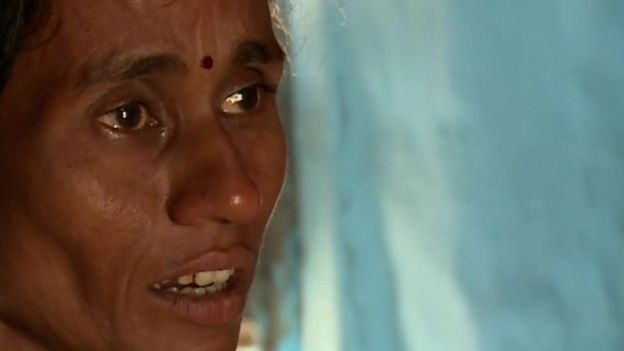
After her husband died, Vaishali had to bury her grief and become the head of the household. "He gave up but I had to live for my two children."
We walk through her five-acre farm where she grows cotton, pulses and soyabean.
I ask her how it feels to be the only woman farmer in her village and her face lights up.
"Men working on my farm didn't take me seriously at first. They thought a woman would not know how to go about this business," she says.
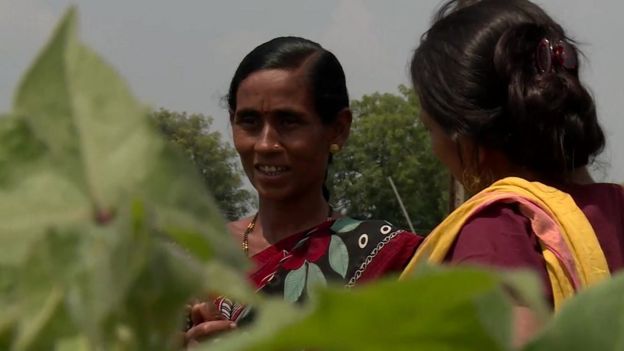
But she seems to have easily mastered farming, discussing crop cycles, fertiliser and pesticides with confidence and authority. She also makes enough money by selling her produce to keep her teenage son and daughter in school.
Vaishali has made the best out of a bad situation, but far away in Rajasthan, two sisters are farming by choice.
As I approach the farm owned by Rimppi Kumari and Karamjit, I see two confident, smiling faces riding a motorbike.
Rimppi also likes to drive their tractor with her younger sister tagging along.
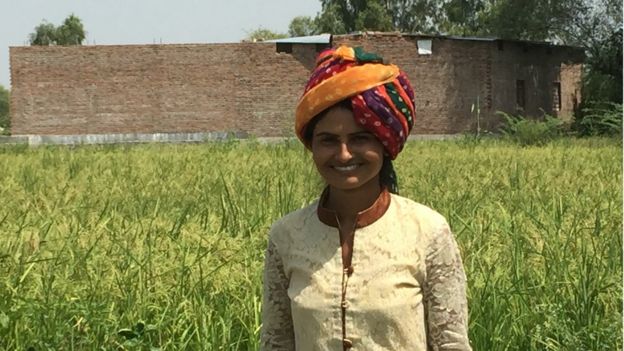
Rimppi is queen of all she surveys on her farm which is making more money than ever
"When my father died seven years ago I decided to take up farming. We own a lot of land, around 32 acres," she says, a smile playing on her lips.
"My family, including my older brother, supported me but in the wider community all hell broke loose."
Rimppi gave up a job in information technology to grow soyabean, wheat and rice. She is making more money out of the land than even her father did, helped by her decision to embrace modern farming techniques.
"Every girl in India is expected to get married, have children and stay at home but I want to do something different," she says.
"I want to fly high. I have shown men I can be a better farmer than them."
But despite their success, the sisters are viewed with disapproval in their village.
Eighty-year-old Sardar Karamjeet Singh voices the opinion of many others when he says that "what these two sisters are doing is wrong. They should have been married by now"."We don't allow our women to leave the house. Forget about farming."
But the sisters have the complete support of their mother.
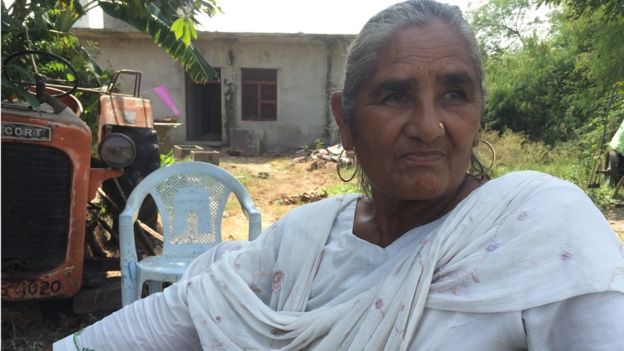
Sukhdev Kaur says she has always believed in her daughters
"If you give opportunities to girls, if you allow them to grow, they can fly high," 60-year-old Sukhdev Kaur says.
"They just need their wings unclipped. I have always believed in my daughters. They show that daughters can surpass sons."
But there is one place where Rimppi feels uncomfortable - the grain market.
"We are the only women around. Men stare at me so I never dress like a woman when I come to the market. I wear trousers and a shirt so people take me more seriously."
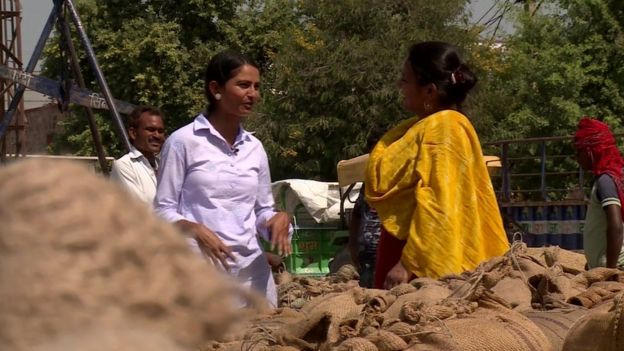
In a country where farming has traditionally been a male preserve, and farming is becoming increasingly unproductive, the three women are remarkable outliers.
Only 17% of India's farmers subsist entirely on earnings from their farms alone, and although more than half of India's population is engaged in farming, agriculture provides less than 15% of the country's GDP.
So it is a long row to hoe, but it does not deter the three women.
"I feel like a brave woman warrior," says Vaishali. Few would disagree.
No comments:
Post a Comment